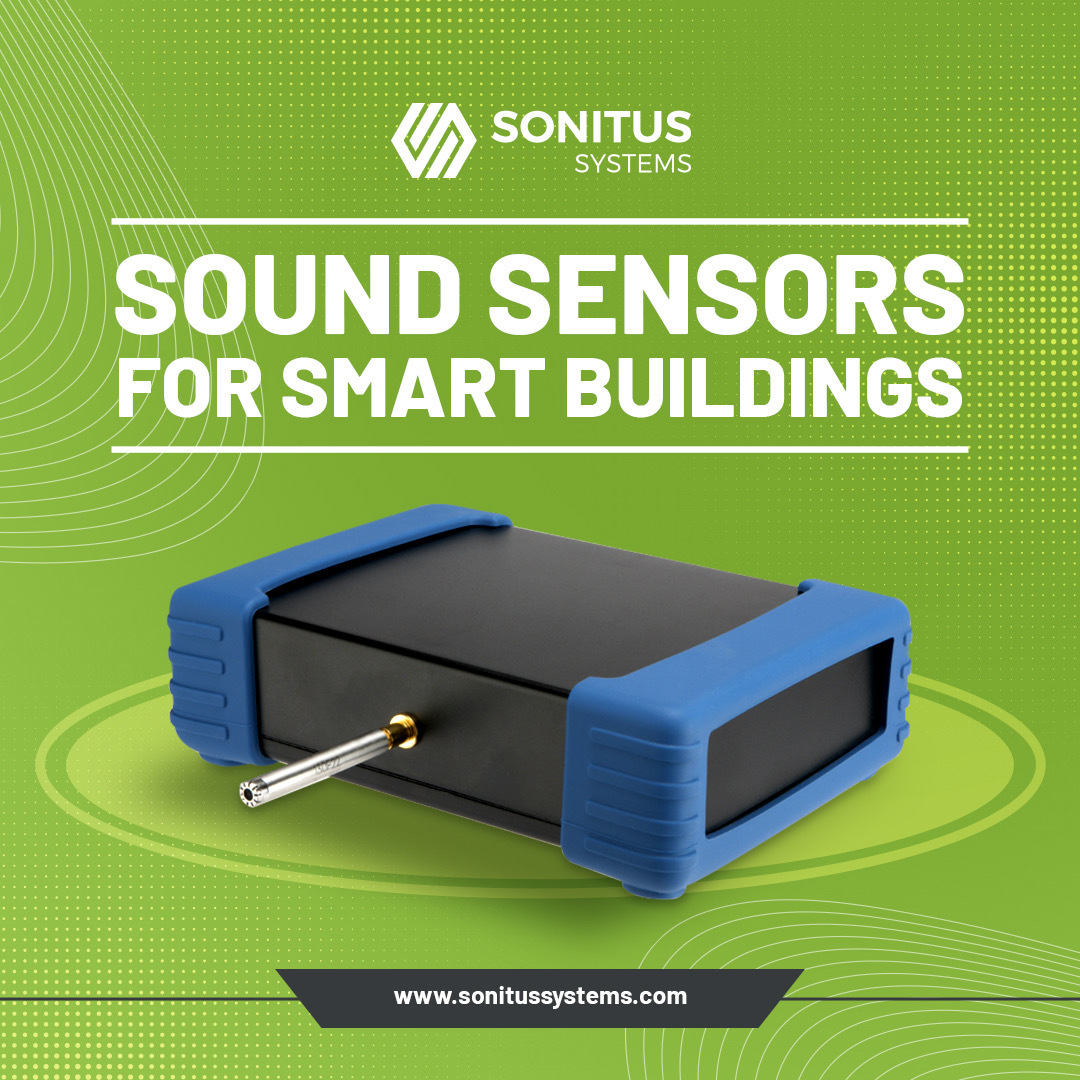Smart Buildings Sensors
One of the most overlooked issues with modern workplaces is noise. While the background hum of a lively workplace is something a lot of people enjoy, certain acoustic conditions can be detrimental not just to productivity, but to the welfare of individuals too. Studies now show that 20 percent of Europeans need to regularly raise their voices to be heard at work, and 7 percent now suffer from workplace-related hearing problems.
For this and many other reasons, keeping noise in check is a workplace priority. Workers in Ireland are protected under the General Application Regulations 2005, Chapter 1, part 5 “Control of Noise at Work” act, established by the Health and Safety Authority.
To maintain workplace productivity and safety, offices are now turning to IoT or internet-of-things devices such as Sonitus Systems’ acoustic monitoring solutions. These sound sensors give workplace managers and building operators the information they need to make sure noise is no longer a threat to health and team productivity.
Dangers of a noisy workspace
The soundscape of a space is a vital component to help people be effective and happy at work. Sonitus Systems focuses its efforts on psychoacoustics – the scientific study of sound perception – to optimise workplaces for wellbeing and productivity.
Psychoacoustics encompasses everything regarding sound. This includes the peak and average volume of a space, the type of noise occurring, and the way these sounds are interpreted. With open-plan offices now the norm, identifying problem noise can be more difficult, with multiple sources occurring simultaneously.
Poor acoustics can hamper productivity
Good acoustic design can not only counteract absenteeism but also improve productivity. Excluding loud machinery, something not typically found in smart buildings, conversational noise is identified as having the most impact on worker productivity.
If “conversational distractions” are not monitored, this can reduce focus on tasks by 48 percent and introduce 10 percent more errors into work as almost half of all office tasks require higher focus.
Noise can be harmful
The average office can regularly exceed 85dB. For comparison, this is only slightly quieter than a Boeing 737 landing a mile away (90dB) or operating a lawn mower (96dB). Regular and extended exposure to noise levels are considered a psychological stress encouraging the body to release stress hormones, spiking our blood pressure and blood rate.
Unmonitored noise is costly
This means noise can be costly. Over time, workers can experience symptoms of hypertension and the problems associated with long-term stress hormone exposure. In the EU, excessive noise has been calculated to cost more than €40 billion a year due to lost work days, increased healthcare costs, and a reduction in productivity.
Solutions by Sonitus Systems
Modern, smart offices are typically open-plan. Open-plan offices encourage collaboration and are generally preferred by workers for the flexibility, company culture, and increased creativity the environment provides. With so many people in a single space, however, noise is an ongoing problem. Open-plan absenteeism is 70 percent higher than traditional office layouts. Fortunately, smart building technology can be used to monitor sound levels and implement responses to maintain productivity and wellbeing.
Acoustic Monitoring devices
Acoustic monitoring devices are used to continually collect data on noise levels in different environments.
For smart buildings and connected office spaces, Sonitus Systems’ AS180 Sonisens is used to provide continual information on key acoustic parameters. This device can be connected straight into a smart office’s existing network and is meant to go unnoticed with its discrete design.
The IoT sensor can be placed in strategic locations throughout an office to provide a full picture of an office’s acoustic profile.
Analytics, compliance checks, and reports
While traditional noise profiling provided basic information, Sonitus acoustic sensors report data straight to Sonitus Cloud, a web-based platform that provides real-time analytics with actionable data.
Sonitus cloud can also be used to generate reports with data collated in a way that helps understand the acoustic context of a space. The data included can help detect peak noise times and noise intensity hotspots, allowing you to implement soundscaping solutions.
Alerts
Sonitus also helps smart offices to ensure compliance with regulations and building code. With acoustic sensors placed throughout an office space, connected through IoT technology, key personnel can be instantly alerted if noise levels exceed set limits. This is useful for maintaining quiet in head-down spaces, especially in an open-plan environment.
As experts in psychoacoustics, acoustic monitoring, and soundscaping, Sonitus Systems can help make your smart office even smarter, maximizing your use of your real estate.
Sonitus Systems offers both the hardware and software for a range of environmental parameters on a continual basis, with real-time information available through our Sonitus Cloud dashboard. For more details on our indoor and outdoor noise and air quality monitoring products and services, please contact the team at https://www.sonitussystems.com/contact-u
